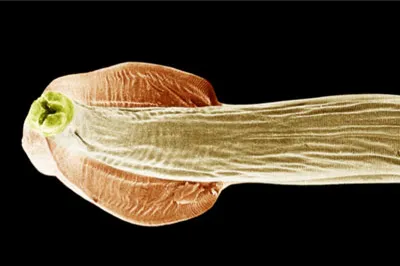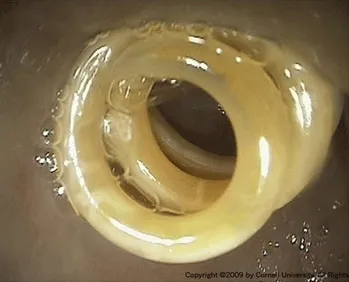Roundworms are among the most prevalent internal parasites affecting dogs worldwide, with most canines, especially puppies, experiencing an infection at some point in their lives. These resilient parasites can be contracted in various ways, making them easy to spread and a significant concern for pet owners. Beyond the health implications for our beloved furry companions, a critical question often arises: Are Roundworms In Dogs Contagious To Humans? The straightforward answer is yes, they can be, posing a tangible public health risk that every dog owner should be aware of and actively work to prevent. Understanding the transmission pathways, symptoms, and comprehensive prevention strategies is crucial for protecting both your dog and your family.
What Are Canine Roundworms and How Do Dogs Get Them?
Canine roundworms (primarily Toxocara canis) are intestinal parasites that resemble strands of spaghetti, typically white or light brown in color and several inches long. Their lifecycle is complex, allowing for multiple routes of infection in dogs.
Mother-to-Puppy Transmission
One of the most common ways puppies acquire roundworms is from their mother. This can occur in two main ways:
- Transplacental (in utero) infection: Larvae can migrate from the mother’s tissues across the placenta into the unborn puppies. This means puppies can be born with roundworms already present.
- Transmammary (through milk) infection: Nursing puppies can ingest larvae from the mother’s milk, becoming infected after birth. This is why regular deworming of both puppies and their nursing mothers is essential. You can learn more about how worms can be passed from dog to dog through various means.
Environmental Contamination
Dogs, particularly puppies, can also become infected by ingesting microscopic roundworm eggs containing infective larvae from a contaminated environment. These eggs are shed in the feces of infected animals and can survive in soil for extended periods, even years, making outdoor areas a common source of infection.
Predation
Another pathway involves dogs eating infected rodents (like mice) or other small mammals that act as “paratenic hosts.” These hosts harbor roundworm larvae in their tissues, and when a dog consumes them, the larvae become active and develop into adult worms in the dog’s intestines.
Recognizing Roundworm Symptoms in Dogs
While many adult dogs with mild roundworm infections may show no outward signs, significant infestations—especially in puppies—can lead to noticeable health problems. Key symptoms include:
- Pot-bellied appearance: This is particularly common in puppies and occurs due to the worms taking up space in the intestines.
- Diarrhea and Vomiting: Irritation to the intestinal lining can cause digestive upset. You might even observe the adult roundworms in your dog’s vomit or feces. If you see signs like this, you might wonder my dog has worms in poop what do i do. While roundworms appear as white or light brown spaghetti-like strands, other parasites might look different, such as worms in dog poop that look like rice, which are typically tapeworms.
- Weight loss: Despite eating, infected dogs may not absorb nutrients effectively.
- Dull coat: A lack of proper nutrition can manifest in a poor coat condition.
- Coughing: If roundworm larvae migrate through the lungs during their lifecycle, they can cause irritation, leading to a cough.
- Poor growth/failure to thrive: Young puppies with heavy worm burdens may struggle to grow properly.
 Microscopic view of Toxocara canis (canine roundworm) anterior end
Microscopic view of Toxocara canis (canine roundworm) anterior end
Effective Prevention and Treatment for Your Dog
Preventing roundworm infection in your dog involves a multi-faceted approach centered on hygiene and regular veterinary care.
- Environmental Hygiene: Regularly clean your dog’s living areas and promptly remove feces from your yard or public spaces. This significantly reduces the number of infective eggs in the environment.
- Deworming Protocols:
- Puppies: Due to the high risk of transplacental and transmammary transmission, puppies should be dewormed starting at 2 weeks of age, then again at 4, 6, and 8 weeks. Following this initial series, monthly preventive treatments are often recommended.
- Adult Dogs: Adult dogs should receive regular fecal (stool) examinations—typically 1 to 2 times per year—and deworming treatments as recommended by your veterinarian. Many broad-spectrum parasite preventives, including those for heartworms, also control roundworms. Discuss options like flea tick and intestinal worm treatment for dogs with your vet.
- Nursing Mothers: Keeping nursing mothers on a monthly preventive and treating them alongside their puppies helps minimize the risk of transmission.
- Preventing Predation: If possible, prevent your dog from hunting and eating wild animals, which can harbor roundworm larvae.
Always consult your veterinarian for the most appropriate deworming schedule and preventive choices for your dog. They can provide guidance on treatment, including what to expect if you see worms in dog poop after heartworm medicine, which can sometimes occur as dead worms are expelled.
The Critical Question: Are Roundworms in Dogs Contagious to Humans?
Yes, roundworms in dogs are contagious to humans under specific circumstances, making them a significant public health concern. Humans, particularly children, can become accidentally infected by ingesting infective roundworm eggs. This type of infection is known as “Zoonotic Toxocariasis.”
How Humans Get Infected by Canine Roundworms
Humans do not typically get infected directly by contact with an infected dog, nor do the worms mature in human intestines to lay eggs. Instead, infection occurs when a person accidentally ingests microscopic roundworm eggs from the environment that have been shed in dog feces. These eggs are highly resistant and can survive in contaminated soil for long periods.
Common scenarios for human infection include:
- Playing in contaminated soil (e.g., sandboxes, gardens, parks where dogs defecate).
- Touching contaminated surfaces and then touching the mouth without washing hands.
- Eating unwashed produce grown in contaminated soil.
Potential Health Risks of Roundworms in Humans
Once ingested, roundworm eggs hatch in the human intestine, and the larvae migrate through various tissues and organs. Unlike in dogs, these larvae typically do not develop into adult worms in humans, but their migration can cause a range of serious health problems, collectively known as Larva Migrans syndromes:
- Visceral Larva Migrans (VLM): Larvae migrate through internal organs such as the liver, lungs, heart, and brain. Symptoms can include fever, cough, wheezing, enlarged liver, abdominal pain, and muscle aches. Severe cases can lead to organ damage.
- Ocular Larva Migrans (OLM): Larvae migrate to the eyes, causing inflammation, vision loss, or even blindness in the affected eye. This often occurs in younger children and can be mistaken for other eye conditions.
- Neurological Larva Migrans (NLM): In rare but serious cases, larvae can migrate to the brain and spinal cord, leading to neurological symptoms such as seizures, headaches, behavioral changes, or even coma.
 Roundworms (Ascarids) visible within a dog's intestine
Roundworms (Ascarids) visible within a dog's intestine
Protecting Your Family: Preventing Human Roundworm Infection
Given the potential for serious health issues, preventing human infection from canine roundworms is paramount.
- Practice Strict Hand Hygiene: Always wash hands thoroughly with soap and water after playing with pets, handling dog feces, gardening, or any activity involving contact with soil, especially before eating.
- Supervise Children: Children are at the highest risk due to their tendency to play in dirt and put hands in their mouths. Supervise children closely in outdoor play areas and teach them proper handwashing. Do not allow children to play in areas known to be contaminated with animal feces.
- Prompt Fecal Removal: Always pick up dog feces immediately and dispose of it properly in sealed bags.
- Maintain Clean Environments: Regularly clean and disinfect dog kennels, runs, and indoor living spaces. Cover sandboxes when not in use to prevent pets from using them as litter boxes.
- Prevent Pet Contamination: Ensure your dog is on a consistent deworming schedule recommended by your veterinarian to reduce the shedding of infective eggs.
- Garden Safety: Wear gloves when gardening or handling soil, especially in areas where pets may have defecated.
Conclusion
Roundworms in dogs are a common issue, but their potential to transmit to humans makes them a significant concern for every dog owner. By understanding how dogs get infected, recognizing the symptoms, and implementing rigorous prevention strategies for both your pet and your family, you can drastically reduce the risk of zoonotic transmission. Regular veterinary check-ups, consistent deworming, meticulous hygiene, and careful supervision of children are your best defenses against these widespread parasites. Prioritizing these practices ensures a healthier, safer environment for everyone in your household.
For veterinary professionals, more detailed information on roundworms can be found at https://www.capcvet.org/guidelines/ascarid/.
